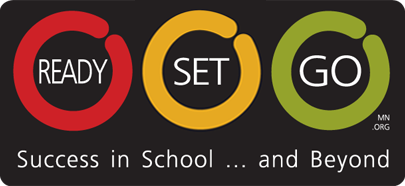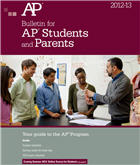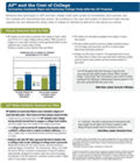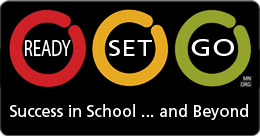Advanced Placement (AP)
Choose your language: Hmoob Español Soomaali
What is Advanced Placement (AP)?
“Advanced Placement” (AP) is a program of college-level courses offered at many high schools. Courses are available in many subject areas, including English, history, humanities, languages, math, psychology and science. The focus is not on memorizing facts and figures. It's on engaging discussions, approaching and solving problems together and learning to write well. You'll get to study fascinating topics and ideas. Who knows? One (or more!) might just become the foundation of your future college major or career.
What are the benefits of taking AP courses?
AP courses can help you gain the skills and study habits you'll need to be successful in college. You'll improve your writing, problem-solving, time-management skills, and learn how to stay focused on your work and goals. Research shows that AP courses help students graduate from college in four years and qualify for scholarships.
AP courses can also help you get accepted into college. It's less about taking the easy classes and earning an "A" than it is about showing colleges that you're willing to take a challenging class, even if it lowers your grade point average. This makes you stand out in the admission process. It also shows that you are taking the initiative to prepare yourself for college-level work.
Who can take AP courses?
Your high school may require you to have a minimum grade point average or have taken certain classes before they allow you to take AP courses. However, don’t assume that you aren’t ready for AP courses. Check with your teachers or your high school school counselor to find out which courses are right for you.
How do I take AP courses?
Most students take AP courses offered through their high school. Check with your school counselor to find out if your school offers them.
Can I take an AP exam without taking the course?
Yes. Any student can take the exam. An AP course is not required, but it does help you prepare for the exam. Other high school or honors classes as well as studying on your own can prepare you too.
How do I earn college credit?
AP classes don't just earn you high school credit. You may also earn college credit if you take an AP exam at the end of the course AND earn a score of at least three (3) on a scale of one (1) to five (5). Colleges and universities consider a score of three (3) an indicator of your ability to do successful college work.
Colleges may award credit or advanced standing. ("Advanced standing" means you don't have to take a lower-level course that may be required for entering students.) Some colleges might even award BOTH! So what does this really mean? Simple: you'll be able to move into upper-level courses sooner. That saves you time and money. It also may allow you the time and money to get a double major or even study abroad.
You have to send your AP scores to each college for them to figure out what you are eligible to receive. Most four-year colleges in the United States, as well as colleges in more than 60 other countries, accept AP scores. In 2011, nearly 3,300 U.S. colleges and universities received AP scores from students. But keep in mind that policies vary from college to college. Do your research ahead of time. Use the links below to find AP policies for U.S. and International schools.
• View AP policy for U.S. schools
• View AP policy for International schools
If you're having trouble finding information or understanding it, ask your school counselor for help.
How many Minnesota students take AP exams?
The number of Minnesota students taking the exams is growing. More than 35,000 Minnesota high school students took more than 56,000 exams in 2011. And more the 66 percent of those earned a score of three (3) or higher.
Who is taking AP exams in Minnesota?
Currently, more girls than boys take AP exams (54 percent compared to 46 percent in 2011) and 13% of all Minnesota test-takers were students of color, an increase of 11 percent over the previous year.
How much does it cost?
AP courses are free, but AP exams cost $87 each. Minnesota covers part of the cost of AP exams for all students, and the exams taken by students who qualify for free/reduced-price lunch are fully paid. Some schools may charge administrative fees to cover the cost associated with giving the exam. Check with your school counselor to learn what (if any) fees you must pay.
Where can I find more information about AP?
The College Board runs the Advanced Placement program. They can help you:
• Learn more about AP
• Search for AP courses offered in Minnesota high schools
Also be sure to check with your school counselor, who can provide all the information you need about AP courses at your high school.




